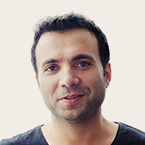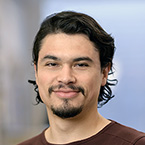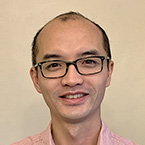AACR-Cancer Research UK Transatlantic Fellowships
The AACR-Cancer Research UK Transatlantic Fellowships is a four-year postdoctoral fellowship program to support promising early-stage postdoctoral researchers to pursue their projects both in the U.K. and the U.S. It represents a joint effort from the AACR and CRUK to support exceptional investigators interested in beginning their independent postdoctoral research careers.
2019 Grantees

Research
The duplication of certain ‘difficult-to-replicate’ loci such as common fragile sites (CFS) is often not completed until mitosis, and this delay can have detrimental consequences. In fact, CFSs are among the most commonly rearranged genomic loci in cancer genomes, highlighting a causal connection between cancer and late DNA replication. It remains unclear how cells mitigate damage associated with late replication in mitosis. By using an unbiased proteomics approach, as well as candidate screening, Dr. Can aims to discover new factors that are required for the regulation of DNA replication in mitosis. The newly identified factors will be analyzed biochemically to reveal their roles in genomic rearrangement at CFSs.
Biography
Dr. Can obtained his doctoral degree from the Gordon Institute, University of Cambridge, investigating the roles of DNA damage checkpoint during the cell cycle. He is currently a postdoctoral fellow at Harvard Medical School, where he is studying the regulation of DNA replication in mitosis.
Acknowledgment of Support
The 2019 AACR-Cancer Research UK Transatlantic Fellowship will be of tremendous help to realize my ambitions at this early stage of my career development. I feel very grateful to have received this prestigious fellowship and the opportunities that open up to me as a consequence. I am excited to pursue my research on DNA replication in mitosis, and I hope that it will allow me to contribute to advances in cancer treatment in the coming years.

Research
Strategies to enhance T-cell infiltration and tumor recognition are needed to potentiate immunotherapy. Single-cell genomics makes it possible to disentangle heterotypic cellular interactions in tumors and reveal mechanisms of response to therapies in an unprecedented manner. Dr. Jimenez-Sanchez is using these approaches to characterize the response to a combination of senescence-inducing therapy and anti-PD1 immunotherapy in lung and pancreatic adenocarcinomas. He is developing computational methods that integrate single-cell transcriptome, epigenome, T-cell receptor profiling, and spatial transcriptomics data across space and time. He will model the tumor microenvironment and tumor evolutionary dynamics in response to senescence-inducing and immunotherapy treatments using tractable mouse models and single-cell data from hundreds of human lung and pancreas tumor samples.
Biography
Dr. Jimenez-Sanchez received his doctorate at the University of Cambridge, where he used genomics approaches to study the microenvironment of ovarian tumors. He detected pervasive heterogeneity in immune infiltrates within patients and found evidence of oncogenic signaling associated with immune exclusion. He then joined the Sloan Kettering Institute in New York and the Francis Crick Institute in London to study tumor spatio-temporal dynamics in response to immune-combination therapies using single-cell genomics computational methods.
Acknowledgment of Support
I am grateful for the support that the AACR-Cancer Research UK Transatlantic Fellowship is providing for my postdoctoral research. This fellowship is allowing me to bring together the expertise of two world leaders of cancer research into this exciting project and it will be critical for my scientific career development.

Research
Genomic profiling of acute myelogenous leukemia (AML) patients has shown that mutations in ASXL1 commonly co-occur with RUNX1 mutations, rendering patients at an increased risk of induction failure and relapse. It is unclear as to why the two mutations co-occur and why patients are resistant to treatment. Using samples from patients with these mutations, Dr. Loke and his research group will identify the clonal structure of the disease at different timepoints of the disease trajectory. They will also develop a new mouse model of this disease to enable identification of mechanisms of collaboration and novel vulnerabilities of this form of AML.
Biography
Dr. Loke trained at the University of Cambridge and the University of Oxford Medical School, and then completed postgraduate hematology training in Birmingham, United Kingdom. He completed his doctorate at the University of Birmingham, receiving a number of prizes for his studies of the epigenetic deregulation of AML with RUNX1 translocations. He is currently working at the Queen Elizabeth Hospital and the CRUK Clinical Trials Unit in Birmingham. He is involved in the management of trials involving patients with AML undergoing allogeneic stem cell transplants.
Acknowledgment of Support
This fellowship is vital to my development as a clinician scientist with the aim to develop transformative strategies to help patients with AML. This funding scheme is unique in enabling this transatlantic collaboration which will accelerate research in a number of hematology-oncology research centers internationally.
